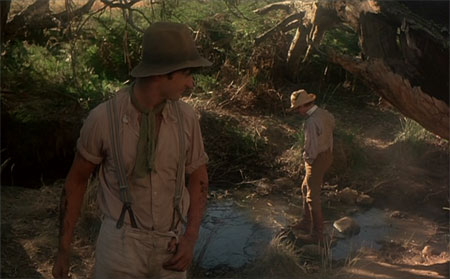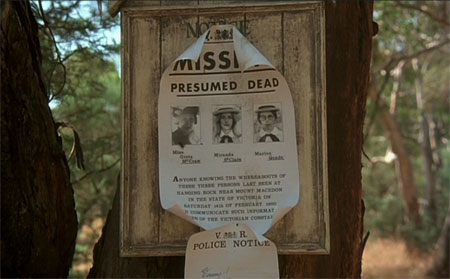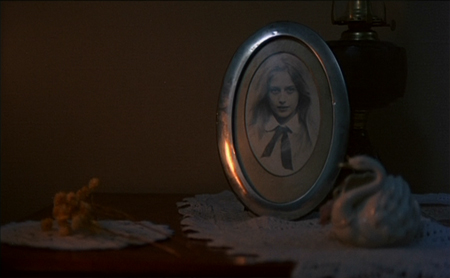A part of this viewing list: Criterion Collection Spine #29: Peter Weir’s Picnic at Hanging Rock.

Despite the fact that Gheorghe Zamfir smears his panflute are all over the the score for this film, it isn’t a bad movie. It seems to be Weir’s Australian interpretation of the Lady of the Wood mythos, with liberal doses of various other fairy tales, most noticeably a swan-princess motif that is perfectly saturated throughout. I wish other films were so restrained in its use, it was a perfect accent. The film is also an autopsy of the Victorian-era, not necessarily a critique of it, but a chance to explore repression in a time where repression was considered a good thing. The first portion of the film is extremely, innocently sensual; such a good approximation of the Victorian era that some of its commonplace items would seem shocking in our more cynical time, such as the ease and abandon of love and longing looks that the schoolgirls give to each other. Before their repression becomes complete.

The flip side of the coin comes from the adults; constantly worrying about the intactness of hymens and the presence of corsets and pants, and whether or not to mention such things to the cops investigating the disappearance of a few schoolgirls [the swan-princess being one of them]. There is also a bit of class-critique going on, one of the girls at the Appleyard College is from an orphanage, she’s lost her brother, who happens to be working for some gentry not too far away. They don’t know about each other and never meet, but the differences and deferences they show when they are comfortable opposed to when they are in the presence of authority offer startling insights. Sara, for instance, barely talks at the school because she has such a low-class accent.

The disappearance of the girls, the recovery of one of them, the mystery enhanced by the Zamfirocity of the panflute create an outlet for the repressed desires of every character in the film. It is almost as if the virgins were assumed into heaven. I wouldn’t even hesitate to call this a science-fiction film, for it is apparent that there is some preternatural force at Hanging Rock that affects the mind. Although there is no answer to the mystery of the girls’ disappearance, the gap they leave in the lives of complete strangers and the yearning instilled in every heart hints at the actual meaning that Weir aimed for. Innocence is always lost.

- Criterion Essay by Vincent Canby
- Roger Ebert Review
- Review with trailer and interview information
- Extensive Fansite
- Criterion Contraption Review
- Tons of Screencaps
- YouTubage